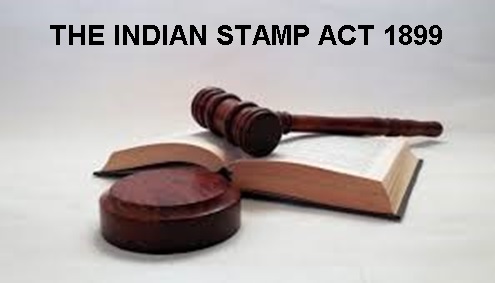Election of directors by members in a company normally happens on the basis of maioris regula i.e., majority rule. The concept of constituency directorship is not new under the Companies Act, 2013 (the Act) or the erstwhile Companies Act, 1956.
The Act creates a separate constituency called small shareholders. A small shareholder is one who holds shares having nominal value of not more than Rs. 20,000 or such other sum as the Government may prescribe. The Act provides for appointment of Small Shareholders Director (“SSD”) either suo motto by the company or on an application by small shareholders subject to conditions. As regards listed companies, the SEBI (Listing Obligations and Disclosure Requirements) Regulations,2015 requires equitable treatment by the Board of Directors of all the shareholders of the company including effective shareholder participation in key corporate decisions, nomination and election of the board of directors but there is no provision to appoint SSD.
The first case of requisition for appointment of SSD happened in Alembic Limited through an institutional investor in the year 2017. However, the resolution was rejected.
Any person desirous of becoming an SSD must have a valid Director Identification Number (DIN), and he should not have suffered any disqualification under Section 164 of the Act and he should have consented to act as director if elected. SSD if elected:
- is not required to retire by rotation
- will have a tenure of office of 3 consecutive years
- upon the expiry of tenure SSD, cannot be reappointed
- SSD post demitting office shall not be appointed or associated with the listed company in any other capacity for a period of 3 years from the end of tenure.
- cannot be appointed as SSD in more than 2 companies at the same time and the second company in which the person is appointed as SSD shall not carry-on business which is in conflict with business of the first company
Section 151 of the Act provides for election of SSD only in case of a listed company. The Companies (Appointment and Qualification of Directors) Rules, 2014, (AQD Rules) under Rule 7 provides that 1000 small shareholders or 1/10th of total number of shareholders of a listed company, may propose the election of SSD. Further, the Rule says that the small shareholders intending to propose a person as a candidate for the post of SSD shall leave a notice of their intention with the company at least 14 days before the meeting specifying the name, address, shares held if any of the person whose name is proposed for the post of director and also the details of the small shareholders who are proposing such person as SSD.
However, in terms of Section 110 of the Act read with Rule 22(16) of the Companies (Management and Administration) Rules, 2014 (the MA Rules) inter alia provides that election of director under Section 151 of the Act (i.e., SSD) shall be only by postal ballot. While Rule 22(16) of the MA Rules prescribes postal ballot for electing SSD, Rule 7(2) of the AQD Rules require the small shareholders intending to propose a person as a candidate for being elected as SSD, states that those small shareholders must leave a notice of at least 14 days prior to the meeting notifying the intention and furnishing requisite particulars. Thus, considering the language of Section 110 of the 2013 Act, postal ballot is mandatory. Therefore, upon receipt of necessary particulars, the company must initiate postal ballot process only.
If an SSD meets the eligibility norms required for an independent director under Section 149(6), he/she can be designated so. This is yet another controversial provision. Section 151 of the 2013 Act does not require the SSD to be an independent director at all. In fact, in the case of nominee directors, the statute itself declares that a nominee director is not an independent director. Since SSD essentially represents small shareholders only, the same logic should only be applied to SSDs also. On that basis SSD should not be deemed to be an Independent Director. However, Rule 7(4) specifically requires that a person who is candidate for being elected as a SSD may be considered as an Independent Director provided he is eligible to be regarded so in terms of Section 149(6) of the 2013 Act and he furnishes a declaration of his independence in terms of Section 149(7) of the 2013 Act. In fact, Rule 7(7) states that if the SSD ceases to meet the criteria of independence as provided in 149(6) of the 2013 Act, his office shall become vacant.
Apart from the above, when requisite number of small shareholders submit a Notice, the Board of Directors do not seem to have any option except proceeding to initiate the postal ballot process. Secondly, even though Board may initiate postal ballot process, if promoter shareholders enjoying a significant percentage of votes at a general meeting (or a postal ballot) decide to vote against, the resolution would fail. Another important question is about the role of the Nomination and Remuneration Committee of the Board (NRC) vis-à-vis the candidature of SSD. There is absolutely no doubt that the candidature of a person could be rejected NRC if it finds that the candidate is not fit for being appointed as a director. Yet another question is with regard to the deposit required to be furnished by candidates standing for election in terms of Section 160 of the Act. Here, the small shareholders who propose to get an SSD elected must necessarily deposit Rs.1,00,000/- in terms of Section 160 of the 2013 Act.
There appears to be conflict of provisions of AQD Rules under Rule 7(3) relating to the requirements that small shareholders are required to provide while proposing the candidature for appointment as SSD and the provisions of Rule 7(4) and (7) as regards the eligibility of the proposed candidate for SSD to be eligible to be appointed as Independent Director. The reasons being:
- While Rule 7(3) does not require the small shareholders to provide the declaration of the candidate chosen for election as SSD as to whether such candidate is eligible under Section 149(6) to be capable of being designated as Independent Director.
- While Rule 7(4) mandates that the candidate so proposed by the small shareholders shall be considered as Independent Director, however, subject to compliance of provisions of Section 149(7) which requires such director to declare his or her independence at the first board meeting that he or she attends every year during the tenure of appointment.
- While Rule 7(7) mandates that if the SSD so appointed fails to meet the criteria of independence as per Section 149(6) he or she shall cease to be SSD.
Hence, Rule 7 under AQD Rules needs a revisit to iron out the aforesaid conflicts to make the concept of SSD a reality. Further, it would be advisable that when a proposal for SSD is put to vote, the promoter and promoter group shareholders should be disentitled to vote, thereby allowing only public shareholders to vote to elect or reject the proposal of election of SSD, unless such proposal is mooted by the Board suo moto.







